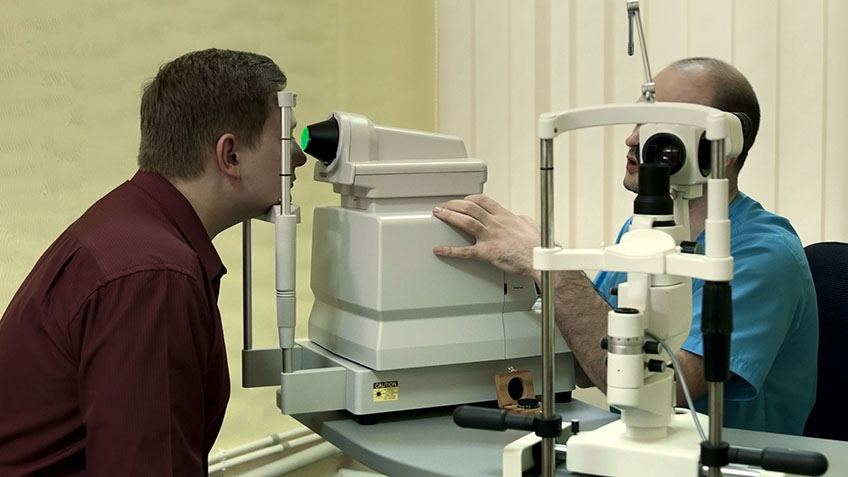Dr. Santos Gracia Villar, president of the Ibero-American University Foundation (FUNIBER), Eduardo Silva, director of FUNIBER in Guatemala, and Dr. Luis Dzul, rector of the Ibero-American International University of Mexico (UNINI Mexico), are leading a study developed by an interdisciplinary team that brings together researchers from different institutions, including FUNIBER. The study formulates an innovative method for detecting high levels of anxiety among medical students through pupil measurement during high-fidelity clinical simulations.
In advanced medical teaching scenarios, the training of medical students is confronted with high levels of demand in clinical simulation environments. Realistic emergency situations, the need for quick decision-making, and the support of technological equipment generate stressors that can increase anxiety in learners. The use of high-fidelity simulation environments promotes responses from the autonomic nervous system such as pupil dilation or increased heart rate.
Historically, the assessment of anxiety in students has been based on self-reported questionnaires such as the State-Trait Anxiety Inventory (STAI) and traditional physiological measures (heart rate, blood pressure, oxygen saturation, etc.). These instruments have value, but they have limitations such as subjectivity, repeated effort, and implementation cost. In recent years, biological measurements (e.g., salivary cortisol) or the use of physiological monitoring technologies have been explored to improve the early detection of anxiety, but with limited results so far.
This study introduces a notable innovation by using a digital pupillometer to measure pupil dilation as an objective marker of anxiety in medical students during a high-fidelity clinical simulation. The research shows that this indicator—the variation in pupil diameter before and after the simulation—has a significant correlation with STAI scores. In addition, the study generates a predictive model with an area under the curve (AUC) of approximately 0.876, confirming the discriminatory capacity of the method.
The study methodology was a randomized, blinded clinical trial (analysts did not know the scenario assignment), conducted at the Advanced Clinical Simulation Center of the University of Valladolid (Spain) between February 1 and April 15, 2023. Sixty-one sixth-year medical students participated, randomly assigned to two simulation scenarios: major trauma or anaphylactic shock. Their vital signs (saturation, perfusion, blood pressure, heart rate, temperature) and pupil diameter were measured before and after the activity, along with the administration of the STAI.
The results show that, after the clinical simulation, the students felt more anxious. It was also observed that their pupils dilated significantly, indicating greater activation of the nervous system. By comparing these changes, the researchers confirmed that pupil dilation is directly related to increased anxiety. Thanks to this, the pupillometer—a device that measures pupil size—could be used as a simple and non-invasive tool to detect anxiety in students during medical simulation activities.
The implications of this work are important for medical education, student mental health, and training management. The introduction of an objective tool such as the pupillometer allows for the early identification of students with high anxiety responses, enabling personalized interventions (e.g., pre-simulation lab visits, relaxation sessions, specific tutoring). Likewise, the institutional collaboration between the European University of the Atlantic (UNEATLANTICO) and the International Iberoamerican University (UNINI Mexico) reinforces the relevance of research in Ibero-American environments and FUNIBER’s position as a catalyst for strategic academic alliances.
This advance is directly linked to FUNIBER’s official academic program Master in Clinical Psychology and Health (or other programs related to innovation and educational health) that the institution offers in collaboration with its partner universities.
If you would like to learn more about this study,click here.
To read more research, consult the repository of UNEATLANTICO
